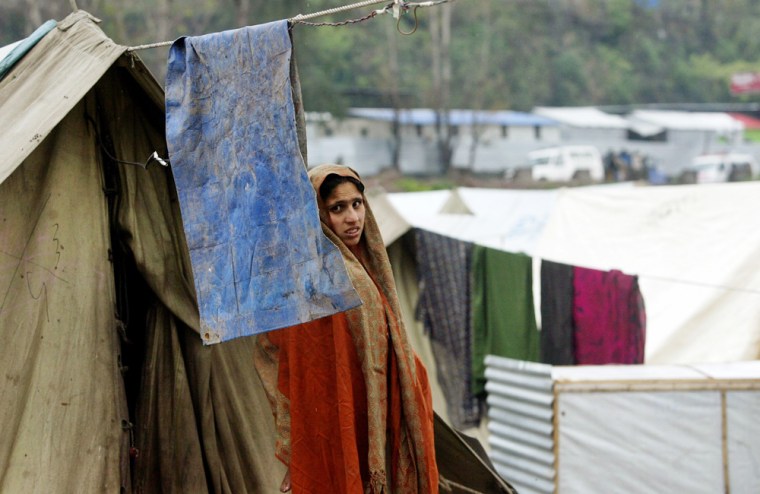At least 1.8 million people living in makeshift shelters and tents are at risk from the Himalayan winter a year after an earthquake ravaged northern Pakistan, the international aid agency Oxfam said on Wednesday.
The 7.6. magnitude quake on October 8, last year killed more than 73,000 people in northern Pakistan, a further 1,500 in Indian Kashmir and rendered more than three million destitute.
“A recent Oxfam survey of 17 earthquake-hit villages found that virtually all those who were living in tents lacked adequate protection against winter weather,” the aid agency said in a statement saying 1.8 million quake-affected people were at risk.
Other agencies estimate fewer people are at risk, but the numbers till run into hundreds of thousands.
Before last winter, relief agencies had feared a second wave of deaths from cold and sickness among survivors living in makeshift shelters and insanitary camps, but the weather was mercifully mild.
Relief agencies fear the winter won’t be as kind for a second year running.
“With snow already falling, this winter seems to have arrived early,” said Farhana Faruqi Stocker of Oxfam International.
70,000 expected to flood into camps
Kate Simpson, from Oxfam’s advocacy office, told a news conference in Islamabad that 70,000 internally displaced people were expected to flood into camps as winter closed in.
The Oxfam report termed the progress of recovery as patchy and the pace of construction of housing and infrastructure as slow, compounded by administrative problems and corruption.
“When we see that one year after Hurricane Katrina, the world’s richest nation -- the U.S. -- is struggling with the reconstruction of New Orleans, it is no surprise that Pakistan has faced difficulties in the recovery across a much bigger area and much more difficult terrain,” said Stocker in the statement.
Elaborating on the graft allegation, Stocker said local officials were involved in corrupt practices while verifying land records and disbursing cash compensation.
She also expressed concern over the activities of some militant-linked charities, like Jamaat-ud-Dawa, in providing relief, and said some had tried to turn people against non-government organizations, and even made threats.
